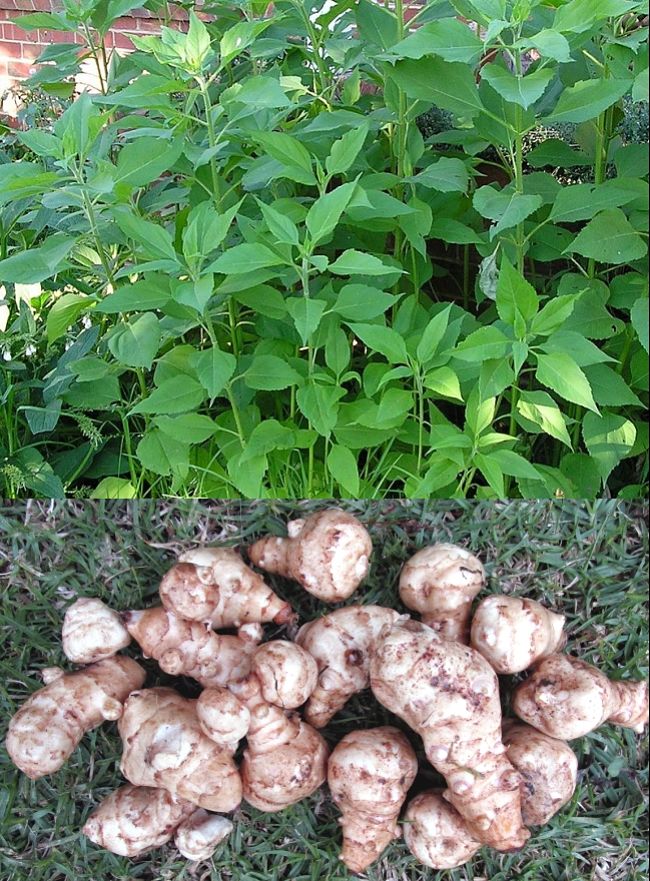Planting and Growing Guide for Jerusalem Artichokes (Helianthus tuberosus)
Description
Jerusalem Artichokes, also known as Sunchoke, are a perennial sunflower grown for their edible roots. The tubers that can be eaten raw or cooked. Plant the tubers in a permanent position under the soil. They are very hardy, dying down in winter and resisting frosts. Add soil and compost around the shoots as they grow. They are also drought-tolerant. They will shoot in Spring and produce small sunflowers. Harvest some of the tubers after the flowers and shoots die off in autumn. Leave a batch of tubers in the ground to grow in the next Spring.
Jerusalem Artichokes have delicate nutty and slightly sweet flavour. The tubers have knobbly irregular shape, and so require careful peeling. This can be avoided by roasting the tubers in their skins or boiling them. The cooked tubers are easier to peel. They are ideal for making soups together with potatoes, carrots, sweet potatoes and capsicums. The tubers can be cooked in many ways: steamed, boiled, fried. They can be sliced or puréed and added to stir fry dishes, casseroles and salads. They can also be roasted. However, please note that they can cause flatulence in some people.
Planting Guide
Seed Depth: Plan the tubers about 5 cm (1 1/2 inches) deep. The tubers can be cut into large pieces before planting.
Space between plants: Space plants about 30-50 cm (1-2 feet) apart. Space rows 60-80 cm (3-4 feet) apart
Harvest Time: Harvest in about 15-20 weeks. May take 2 years to produce a good yield. leave in the ground and harvest as you need them as the tubers do not store well after harvest
Hints:
- Does best in full sun or partial shade
- Best in a sheltered position as strong winds can damage the tall flower heads. Stakes may be needed
- Does best in rich well-drained open soils with a covering of mulch to inhibit weeds and to keep the soil moist
- Water regularly and evenly, especially in summer
- Frost tolerant, dies down in winter
- Feed regularly and keep the plants growing strongly to produce a good harvest of tubers
- They prefer alkaline conditions and so add lime if necessary to raise the pH above 6.5

Disclaimer: The PlantWhatWhen vegetable planting guide is only designed for use as a very general reference for home gardening purposes. It is not to be used for farming, markets or commercial activities of any kind whatsoever. We take absolutely no responsibility for the accuracy and adequacy of the information provided on this site. We recommend that you consider your local climate, weather patterns and conditions when deciding what and when to plant in your home garden. It's entirely your own decision. Happy Gardening and Best Wishes!